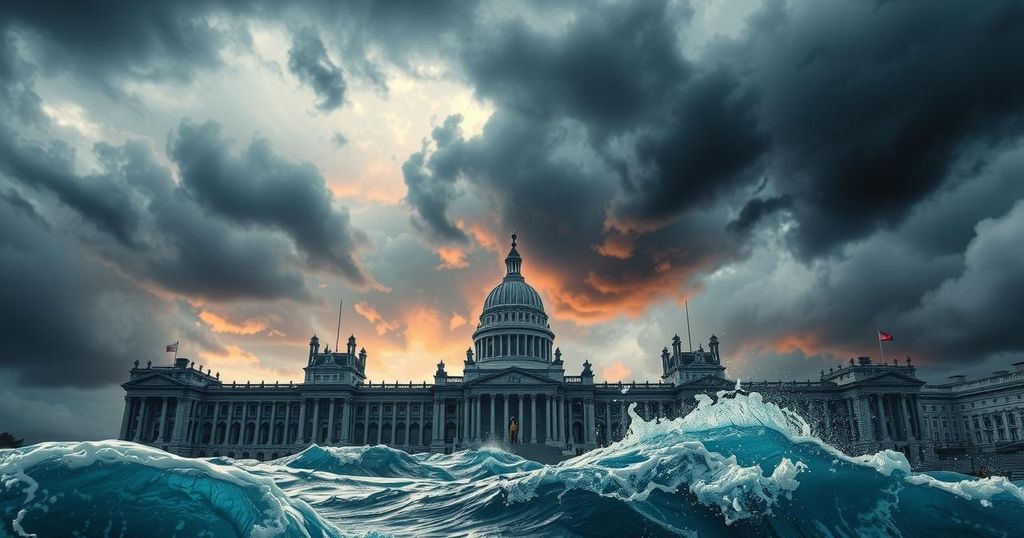Escalating Political Crisis in Mozambique: Impacts and Implications

Mozambique is experiencing a severe political crisis following disputed October 2024 elections marked by allegations of fraud. Protests demanding accountability are escalating, particularly led by Venancio Mondlane of the opposition, posing a challenge to the ruling Frelimo party. This unrest is causing significant economic disruptions, impacting trade with South Africa, and leading to calls for change amid ongoing violence and deepening social tensions.
Mozambique is entrenched in an escalating political crisis following the October 2024 presidential elections, where claims of election fraud have led to widespread protests and violence. Protesters, demanding electoral accountability, are spearheaded by Venancio Mondlane, an opposition figure. Initial electoral results showed Frelimo party’s candidate, Daniel Chapo, achieving a significant victory, but opposition perspectives challenge this legitimacy, exacerbating tensions that have already resulted in numerous casualties and unrest across the country.
The country’s instability is further complicated by regional implications, particularly affecting neighbors like South Africa due to disrupted trade resulting from ongoing protests. Following the allegations of electoral fraud, protests have intensified, with calls for sustained demonstrations. Mondlane, despite being in exile, has galvanized supporters through social media, representing a growing dissent against Frelimo’s long-standing grip on power since Mozambique’s independence in 1975.
Furthermore, Mozambique is grappling with structural economic challenges, marked by years of crises, such as a notorious public debt scandal and natural disasters. This has impeded economic growth, especially in urban areas where youth unemployment is rampant. With a significant portion of the population relying on agriculture, ongoing violence and economic turmoil could aggravate food insecurity.
Frelimo’s governance approach has fostered ethnic divisions and social unrest within Mozambique, seen in the tensions involving different ethnic groups during security force deployments. Notably, opposition movements, like that led by Mondlane, signify a shift as youth and professionals converge to challenge Frelimo’s authority, suggesting a possible transformation in the political landscape.
As Mozambique faces an uncertain future, prospects hinge on the evolving political situation, regional dynamics, and efforts to stabilize its LNG projects critical to economic development. A likely outcome points toward continued unrest and negative repercussions for regional economies, especially for South Africa, which relies heavily on trade routes through Mozambique, particularly for chrome exports.
The political crisis in Mozambique has roots in historical electoral discrepancies dating back to the early 1990s. The ruling Frelimo party has faced accusations of authoritarian practices, leading to public disillusionment. The current unrest is characterized by protests that reflect deep-seated frustrations with governance and economic stagnation. Additionally, regional tensions are rising, affecting trade in neighboring countries, underscoring the interconnectedness of Mozambique’s crisis with broader Southern African stability.
Mozambique’s political crisis stems from allegations of election fraud, leading to rising unrest and economic turmoil. As protests escalate, they threaten regional trade, particularly with South Africa. The crisis showcases significant public dissatisfaction with Frelimo’s enduring governance, highlighting the need for political reform and a more representative government structure. Future stability hinges on addressing these underlying tensions and fostering dialogue among various political factions and the international community.
Original Source: www.gisreportsonline.com






